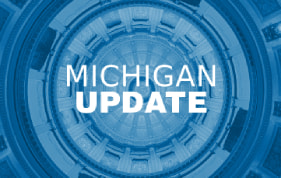This week, our In Focus section reviews the draft Medi-Cal Managed Care Plans (MCPs) request for proposals (RFP) released on June 1, 2021, by the California Department of Health Care Services (DHCS). California will procure MCPs for the Two-Plan Model, Geographic Managed Care (GMC), Regional Model, Imperial Model, and San Benito Model. This RFP excludes County Operated Health Systems (COHS) Plans and Local Initiative Plans. Of the total 13.5 million Medi-Cal beneficiaries, there are nearly 11.6 million in Medicaid managed care, of which approximately 3.5 million will be served under this RFP. A final RFP release date is still “to be determined” but expected in late 2021. Feedback on the draft RFP is due July 1, as well as voluntary non-binding letters of intent. A pre-proposal web conference will be held on June 10.
1825 Results found.

Former Florida Medicaid Director Joins Health Management Associates

Which Medicare Changes Should Continue Beyond the COVID-19 Pandemic? Four Questions for Policymakers
In an issue brief prepared for The Commonwealth Fund and The SCAN Foundation, HMA consultant Jennifer Podulka and Vice President Jonathan Blum, analyze the temporary COVID-19-related changes to Medicare regulations, described the benefits and risks of the changes, and offered a framework to support policymakers’ decisions on the future of these temporary policies.

Webinar Replay: Improving Behavioral Health Access and Outcomes through Primary Care Integration
This webinar was held on June 10, 2021. This was the fourth webinar in the series Exploring the Landscape of Behavioral Healthcare, covering the growing impact of behavioral healthcare on clinical outcomes and cost.
The integration of behavioral health into primary care settings is an effective means for treating less complex conditions, improving outcomes, and reducing referrals to overburdened specialty behavioral health providers. During this webinar, HMA behavioral health experts discussed strategies for integrating primary and behavioral care, including integration models that can be used to blend and shape services according to a clinic’s specific needs. Speakers also introduced a stepped approach to integration aimed at helping providers identify the right care for the right person at the right time.
Learning Objectives
- Understand the features and components of effective approaches to integrated care, including the roles of team members, workflows, and care protocols.
- Learn how to distinguish among various integrated care models, including the collaborative care model (CoCM) and primary care behavioral health model (PCBH).
- Identify key outcomes measures that demonstrate the effectiveness and value of integrated care to payers and patients.
- Understand the benefits of a stepped approach to integrating primary and behavioral health, ensuring patients receive the care they need.
HMA Speakers
Lori Raney, MD, Principal, Denver, CO
Barry Jacobs, PhD, Principal, Philadelphia, PA

Webinar Replay – Stimulant Use Disorder: Harm Reduction Strategies and Evidence-based Interventions
This webinar was held on June 3, 2021.
People who use stimulants may experience a range of negative health outcomes, including cardiovascular events, increased risk of acquiring or spreading HIV and Hepatitis C, dental problems, violent behavior, psychotic symptoms, and overdose. Fortunately, an impressive array of evidence-based treatments and harm reduction strategies are available to help individuals address stimulant use and addiction.
During this webinar, HMA behavioral health experts outlined proven interventions, including motivational interviewing, cognitive behavior therapy, contingency management, and community reinforcement therapy. Speakers also discussed recent HIV outbreak clusters and harm reduction efforts.
Learning Objectives
- Understand the risks associated with stimulant use, including the likelihood of overdose, heightened susceptibility to certain physical and behavioral health conditions, and risk of diseases transmitted sexually or through needles.
- Review the impressive results achieved with evidence-based treatment strategies, including motivational interviewing, cognitive behavior therapy, contingency management, and community reinforcement therapy.
- Understand the importance of harm reduction interventions, including safe sex, pre- and post-exposure prophylaxis, overdose prevention education, and access to clean syringes, fentanyl test strips, and naloxone.
HMA Speakers
Charles Robbins, MBA, Principal, Los Angeles, CA
Shannon Robinson, MD, Principal, Costa Mesa, CA

HMA authors report examining future of COVID-19 Medicare regulation changes
A new Issue Brief, authored by Jennifer Podulka and Jon Blum, examines the many changes to Medicare regulations put in place during the COVID-19 pandemic. The brief, Which Medicare Changes Should Continue Beyond the COVID-19 Pandemic? Four Questions for Policymakers, tracks and categorizes the regulatory changes, describes the benefits and risks of the changes, and establishes a framework to support policymakers’ decisions regarding the future for the changes after the pandemic ends.

California Proposed May Revision Budget Adds Medi-Cal Expansions
This week, our In Focus section reviews California’s May Revision to the Governor’s Budget, which proposes a $267.8 billion budget (with $196.8 billion General Fund) for fiscal year 2021-22. The revised budget includes $24.4 billion in reserves, the largest in history. The May Revision builds on the California Advancing and Innovating Medi-Cal (CalAIM) proposal and introduces several Medi-Cal initiatives and benefits for fiscal year 2021-22.

CMS Inpatient Hospital Proposed Rule to Repeal Market-based MS-DRG Weight Methodology
This week, our In Focus section reviews the key provisions of the Centers for Medicare & Medicaid (CMS) Fiscal Year (FY) 2022 Medicare Hospital Inpatient Prospective Payment System (IPPS) and Long-Term Acute Care Hospital (LTCH) Proposed Rule (CMS-1752-P), which includes Medicare payment updates and policy changes for the upcoming FY, with a comment deadline of June 28, 2021. This year’s proposed rule includes several proposals the hospital industry should carefully consider. In particular, the Biden Administration has proposed to:

